Benefits of Academic Journaling
Picture academic journaling as your trusted companion on the path to scholarly excellence. Just like a skilled mentor guides you toward success, your journal becomes that reliable friend who helps unlock your full potential. Let’s explore three transformative benefits: developing your writing prowess, achieving your goals, and unleashing your creative spirit.
Writing Skills Enhancement
Think of academic journaling as your personal writing sanctuary, where every word flows naturally and every idea finds its perfect expression. Like an athlete who trains consistently to improve performance, your daily journaling practice strengthens your writing muscles. With each entry, your grammar becomes more polished, your vocabulary expands naturally, and your writing style evolves. The experts at Connections Academy have found that regular journaling transforms even hesitant writers into confident communicators.
By recording your thoughts consistently, academic journals naturally cultivate strong writing habits. Consider it your intellectual training ground, where you learn to wrestle with complex ideas while developing razor-sharp critical thinking and argumentation skills. Looking to level up your writing game? Take a peek at the Cornell notes method.
Goal Setting and Achievement
Your academic journal serves as your personal success strategist. Write down your dreams, monitor your progress, and celebrate your victories. This process builds natural accountability and maintains your focus, whether you’re crafting a groundbreaking thesis or preparing for that crucial exam.
Think of your journal as your strategic planning companion, helping you map clear, achievable objectives while tracking your research journey. It works like a supportive friend who helps break overwhelming projects into manageable steps, guiding you steadily toward success. Want to supercharge your goal-setting process? Check out our academic goal journal resources.
Inspiring Creativity
Let’s talk about unleashing your creative potential through journaling. Your academic journal provides the perfect playground for exploring wild ideas and revolutionary concepts. Whether through thoughtful reflection or visual brainstorming, your journal becomes an innovation laboratory. According to Medium, this creative exploration enhances your problem-solving capabilities while elevating your mood.
Try experimenting with stream of consciousness writing, bullet journaling, or combining sketches with mind maps to see where your imagination leads. Ready to add some creative flair to your journal? Explore our academic bullet journal guide for inspiration.
By understanding these powerful benefits, students and researchers can harness academic journaling to enhance their writing, achieve their goals systematically, and unlock their creative potential.
The Psychological Perks of Academic Journaling
Memory Boost
Consider your pen as powerful as any digital tool when it comes to learning. Research confirms that journaling significantly enhances cognitive function. Handwriting isn’t just traditional, it’s scientifically proven to boost memory. This practice helps students retain information more effectively and excel in examinations.
Studies confirm that writing engages unique neural pathways (Connections Academy). This becomes particularly valuable during exam preparation or research projects. For proven note-taking strategies, explore the Cornell Notes Method.
| Benefit | How It Helps |
|---|---|
| Better Memory | Writing cements memories, making it easier to remember stuff. |
| Clear Thoughts | Jotting thoughts helps with problem-solving—kinda like decluttering your brain. |
| Brain Workout | Putting pen to paper fires up brain parts that help keep info stuck in there. |
Finding Yourself
Regular journaling naturally increases your self-awareness. Like a trusted friend who helps you see things clearly, your journal helps you identify patterns in your thinking and behavior. Students particularly benefit from understanding their strengths, challenges, and emotional responses more deeply.
Journals act as personal mirrors, reflecting your growth journey and helping you make sense of your experiences. They become invaluable tools for both personal development and academic success (Connections Academy). Looking for structured self-reflection? Consider starting an academic bullet journal.
De-Stress Zone
When academic pressure builds, your journal becomes your peaceful retreat. Writing about challenging situations provides clarity and reduces anxiety, potentially improving both emotional wellbeing and physical health.
Converting emotions into words often provides the relief you need, reducing mental burden. Regular journaling practice significantly reduces stress levels, making it invaluable for managing academic pressures. Interested in more coping strategies? Check out our study reflection techniques.
| Stress Shaker | Why It Works |
|---|---|
| New Perspective | Writing let’s you step back and see things differently, which helps with stress. |
| Better Mood | Sharing feelings in a journal pumps up your happiness and health. |
| Tension Tamer | Making journaling a habit eases stress and keeps mental health in shape. |
Working a bit of academic journaling into your daily grind can crank up your mental health and college game. Memory, self-understanding, and stress levels all get a boost—nice, right? For tips on jumping into the digital side of journaling, don’t miss out on our digital academic journals guide.
Practical Guide to Academic Journaling
Consider academic journaling your secret weapon for transforming your scholarly journey. This guide will help you select the perfect journal, create an inspiring workspace, and discover techniques to maximize your journaling experience.
Choosing the Right Journal
Finding the right journal is like choosing a trusted companion for your academic adventures. Here’s what to consider:
- Traditional Paper Journal: Perfect for those who love the tactile experience of writing. Pick it up anytime, anywhere, and let your thoughts flow naturally.
- Digital Journal: Ideal for digital natives. Digital journals offer cloud storage, letting you capture insights wherever inspiration strikes. Academic
- Bullet Journal: A creative blend of organization and academic planning. Track research, manage citations, and maintain productivity all in one place.
| Journal Type | Benefits |
|---|---|
| Traditional Paper | No tech-required, feel that paper vibe |
| Digital | Sync and search with ease, keep it all organized up in the cloud |
| Academic Bullet | Mix academic needs with creative freedom, tailor it to your style |
Establishing an Inspiring Writing Environment
Your journaling space should feel like stepping into your personal creativity sanctuary. Here’s how to craft it:
- Pick a Quiet, Cozy Corner: Create a distraction-free zone where your thoughts can flow freely.
- Organize Your Gear: Keep everything within easy reach, journals, pens, sticky notes, or any other tools you enjoy using.
- Add Some Personality: Decorate your space with elements that inspire you, artwork, quotes, or photos that spark creativity.
With your journaling haven set, writing becomes less of a chore and more of a daily treat.
Effective Journaling Techniques
Let’s explore some engaging strategies to make your journaling practice more effective:
- Warm-Up Writing: Start with a mental stretch by writing freely for 5-10 minutes.
- Prompts and Templates Galore: Jump-start your creativity with prompts or try structured templates like Cornell Notes method.
- Free Writing: Release your thoughts without editing. Let your words flow naturally and freely.
- Reflect and Ponder: Review your entries regularly to gain deeper insights and track progress toward your goals.
- Maintain Consistency: Schedule your journaling time like an important meeting with yourself.
For more tips, check out our resources on study reflection techniques and academic time management.
By choosing the right journal, creating an inspiring environment, and implementing effective techniques, academic journaling can revolutionize your scholarly journey and personal growth.
Overcoming Journaling Challenges
Starting your academic journaling journey feels like embarking on an exciting adventure, but like any worthwhile pursuit, it comes with its share of challenges. Let’s explore some common hurdles and discover practical solutions that will help you maintain a rewarding journaling practice.
Dealing with Writer’s Block
We’ve all experienced that moment when words seem to hide from us. Picture yourself staring at a blank page, feeling stuck. But remember, writer’s block is just a temporary visitor, not a permanent resident. Here’s how to show it the door:
- Set a Routine: Pick your perfect journaling moment each day.
- Prompts and Questions: Spark your thinking with thought-starters like “What discoveries did I make in my research this week?”
- Free Writing: Let your thoughts flow freely for 5-10 minutes without judgment.
| Causes of Writer’s Block | Quick Fixes |
|---|---|
| Brain Freeze | Use thought-provoking prompts |
| Needing Everything Perfect | Just free write! |
| No Routine | Carve out time each day |
Looking for more inspiration? Our guide on study reflection techniques offers additional strategies to keep your words flowing.
Managing Perfectionism
Think of perfectionism as that well-meaning friend who sometimes gets in the way of progress. While attention to detail matters, letting perfectionism control your journaling practice can prevent you from capturing valuable insights. Try these approaches:
- Set Realistic Goals: Focus on consistent writing rather than flawless entries.
- Embrace Mistakes: Your journal serves as your learning laboratory, not a published manuscript.
- Chunk It Down: Transform large writing tasks into smaller, manageable pieces.
Remember what Connections Academy tells us: journaling skills develop naturally over time, so be patient with your progress.
Ensuring Consistency and Privacy
Creating a sustainable journaling habit while protecting your personal reflections requires thoughtful planning. Consider these strategies:
- Make It Habitual: Align your journaling time with your natural daily rhythm. Early birds might write at sunrise, while night owls prefer evening reflection.
- Pick The Right Journal: Choose between traditional paper journals or digital academic journals based on your comfort and needs.
- Keep It Under Lock and Key: Protect your private thoughts using physical locks or encrypted digital solutions.
| Concern | Solution |
|---|---|
| Keeping Steady | Stick to a routine |
| Guarding Secrets | Use lockable journals or apps |
| Making It Fun | Find a journal that fits you |
Building a consistent journaling practice while maintaining privacy creates the foundation for honest, meaningful reflection. For inspiration on different journaling approaches, explore Moonster Leather’s diverse journaling styles.
By addressing these common challenges head-on, you can transform your academic journaling from a daunting task into an enjoyable, enriching practice. Want to explore more strategies for maintaining your momentum? Visit our resources on academic bullet journals and time management techniques.
Remember, your journaling journey represents a personal investment in your academic and personal growth. Each entry brings you closer to your goals, whether you’re documenting research insights, tracking project progress, or exploring new ideas. Start where you are, use what you have, and watch your academic journey transform through the power of consistent journaling.







